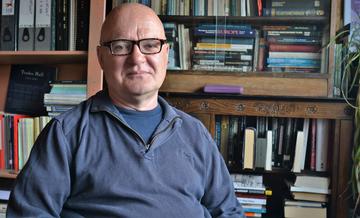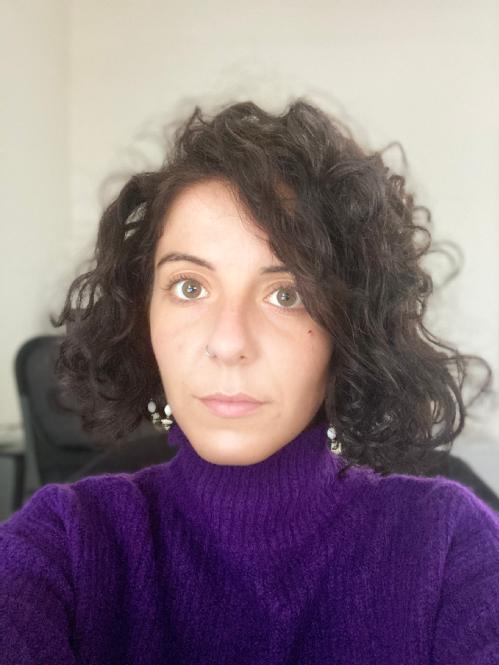OCLW Life-Writing Research Network Seminar: Michaelmas 2024
OCLW Life-Writing Research Network Seminar: Michaelmas 2024
Join us for our first OCLW's Life-Writing Research Network seminar of the academic year.
Speakers:
- Professor Peter Ackers
- Dr Paola Zichi
Professor Peter Ackers, Trade Unions & the British Industrial Relations Crisis: An Intellectual Biography of Hugh Clegg

Peter Ackers is Emeritus Professor in the History of Industrial Relations (IR), Loughborough University. His research bridges contemporary social science & historical approaches to employment, including the history of post-war British IR, as both a practical public arena and an academic social science field. The development of pluralist & social democratic ideas is explored in Ackers & Reid (eds), Alternatives to State-Socialism in Britain: Other Worlds of Labour in the Twentieth Century, Palgrave, 2016. His PhD was a Biographical study of great Grandad WT Miller, a coal mining trade union leader and Nonconformist Christian. Peter was OCLW Visiting Scholar 2016/17 and has written entries on IR academics and union leaders for the Oxford Dictionary of National Biography and the Dictionary of Labour Biography. He will talk about Trade Unions & the British Industrial Relations Crisis: An Intellectual Biography of Hugh Clegg, Routledge, June 2024 & the experience of researching and writing this over the past 20 years. You can read the first few chapters via this link.
 Hugh Clegg (1920-95) was a founding figure of post-war British Industrial Relations, the forerunner of Employment Relations & Human Resource Management, as taught in Business Schools today. He defined ‘industrial democracy’ as collective bargaining with trade unions, laid the foundations for the pluralist approach to Industrial Relations, was a key influence in the post-war social sciences and a major public policy player. More widely, he was an important figure on the Cold War social democratic academic left, who broke with his earlier Communism to champion free trade unions in a liberal democratic society. He also produced the major Oxford University Press trade union history. This book aims to understand the politics and IR of the post-war period in Britain (in which trade unions were central) through the life of a leading public intellectual. It illustrates how the failures of post-war industrial relations led to Thatcherism. The book closes with a Personal Epilogue, reflecting on the Biographer's own political and intellectual development in the next generation of IR academics.
Hugh Clegg (1920-95) was a founding figure of post-war British Industrial Relations, the forerunner of Employment Relations & Human Resource Management, as taught in Business Schools today. He defined ‘industrial democracy’ as collective bargaining with trade unions, laid the foundations for the pluralist approach to Industrial Relations, was a key influence in the post-war social sciences and a major public policy player. More widely, he was an important figure on the Cold War social democratic academic left, who broke with his earlier Communism to champion free trade unions in a liberal democratic society. He also produced the major Oxford University Press trade union history. This book aims to understand the politics and IR of the post-war period in Britain (in which trade unions were central) through the life of a leading public intellectual. It illustrates how the failures of post-war industrial relations led to Thatcherism. The book closes with a Personal Epilogue, reflecting on the Biographer's own political and intellectual development in the next generation of IR academics.
Dr Paola Zichi, ‘Feminist Microhistories and International Law: The Lives of Coralie Cahen and Costanza Rignano Sullam between Humanitarianism, Children and Women’s Welfare (1870-1910)’
 Paola Zichi is a British Academy Postdoctoral Fellow at the Warwick Law School working on a research project on Jewish Feminist Lawyering and International Law: Women Jurists in European Legal History (1899-1949). Previously, she worked at QMUL History, as postdoctoral researcher on an AHRC-funded project on sex work and migration in Jewish history between 1875-1940 in Europe. In April 2020, she completed her PhD at SOAS on feminisms, gender law reform and the League of Nations in Mandate Palestine. Her research interests and expertise fall within the broader field of feminist approaches to the history of international law, women’s legal history and Jewish history, Israel/Palestine, and broadly speaking history of women’s international law and global governance in the twentieth century.
Paola Zichi is a British Academy Postdoctoral Fellow at the Warwick Law School working on a research project on Jewish Feminist Lawyering and International Law: Women Jurists in European Legal History (1899-1949). Previously, she worked at QMUL History, as postdoctoral researcher on an AHRC-funded project on sex work and migration in Jewish history between 1875-1940 in Europe. In April 2020, she completed her PhD at SOAS on feminisms, gender law reform and the League of Nations in Mandate Palestine. Her research interests and expertise fall within the broader field of feminist approaches to the history of international law, women’s legal history and Jewish history, Israel/Palestine, and broadly speaking history of women’s international law and global governance in the twentieth century.
The appreciation of different types of autobiographical writing as historical sources has grown considerably in the last decades. Diaries, travel journals, memoirs and autobiographies help us to understand not only authors’ impressions and emotions, but also their experiences and ideas of international, social, and low-level justice. However, these sources are still much underused to write women’s and international legal histories. The paper focuses on the lived experiences of two European Jewish women campaigners, Coralie Cahen (Paris) and Costanza (Nina) Rignano Sullam (Milan). It uses personal sources, private letters, and ego-documents to reconstruct their charitable and philanthropic work to help refugees, prisoners of war and children at the turn of the twentieth century. The paper asks whether their shared Jewish heritage limited or expanded their experience of the international domain, and whether common experiences of antisemitism shaped their activism on international justice. The paper argues for the importance of ego-documents and microhistory to writing feminist historiographies of international law. To do so, life-stories and legal biographies are hereby intended not as fairy-tale histories of stand-alone heroines, martyrs, or pioneers, but rather as the histories of real women who, embedded as they were in feminist networks, political campaigning, and organisations, help us understand the biases and the constraints of positionality, circumstances, and personal experiences in shaping legal work. Thus, to tell their stories is to frame a feminist historiographical approach which questions nationally bounded and linear historical legal narratives of progress and civilisation and those narratives which treat jurists, lawyers and campaigners as atomised, isolated, and glorified humans, agents of legal progress. In other words, the project centres women’s positionality, class, ethnicity, and race as vectors of powers and differentiation, and axis of subjugation and domination in the making of a feminist politics of international legal reform.
The OCLW Life-Writing Research Network:
The Life-Writing Research Network is a global community for those researching life-writing. It offers a termly online seminar for researchers to present and discuss their work. Members also receive invitations to in-person events in Oxford, like lectures and networking receptions. Open to academics, students, and independent researchers of all stages, the network fosters lifelong connections.
Find out more and join the OCLW Research Network here.
This is a free seminar that is only open to members of OCLW's Life-Writing Research Network. Registration is required





